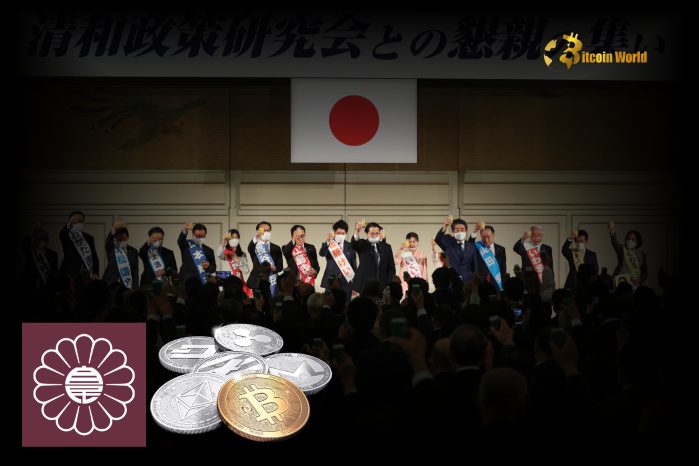The Liberal Democratic Party (LDP) of Japan is advocating for a significant overhaul of the country’s cryptocurrency tax policy. According to reports by CoinPost and Japanese media outlets, the proposed reform includes a reduced, separate tax rate of 20% on cryptocurrency trading profits and the introduction of a loss carryforward system. This initiative could mark a pivotal shift in how Japan treats cryptocurrency income, potentially making the nation a more attractive hub for digital asset investors and businesses.
The Current Tax System for Cryptocurrency in Japan
Under Japan’s existing tax framework, cryptocurrency profits are classified as miscellaneous income, subjecting them to progressive tax rates of up to 55%. This classification places a heavy financial burden on individual investors, particularly those in higher income brackets.
Key Features of the Current System
- High Tax Rates: Progressive rates can discourage active trading and investment.
- No Loss Carryforward: Investors cannot offset crypto losses against future profits, exacerbating financial risks.
- Limited Clarity: The lack of detailed regulations creates confusion among taxpayers and accountants alike.
What the LDP’s Proposed Tax Reform Entails
The LDP’s proposal aims to modernize the tax treatment of cryptocurrencies to align with global standards and foster innovation in Japan’s digital economy.
Key Features of the Proposed Reform
- 20% Separate Tax Rate: Profits from cryptocurrency trading would be taxed at a flat 20%, a significant reduction from the current maximum of 55%.
- Loss Carryforward System: Investors could offset losses incurred in one tax year against future profits, reducing their overall tax burden.
- Streamlined Classification: A dedicated tax category for cryptocurrency trading would eliminate ambiguity and ensure uniform application of the law.
These changes would align cryptocurrency taxation with other investment categories, such as stocks and forex trading, creating a fairer system for investors.
Why the Push for Crypto Tax Reform?
The LDP’s push for reform is driven by several factors:
- Boosting Competitiveness: Japan aims to strengthen its position as a leading crypto-friendly nation amid rising global competition.
- Encouraging Innovation: Lower taxes and clearer rules could attract blockchain startups and crypto-related businesses to set up operations in Japan.
- Investor Confidence: Simplified and fairer taxation would encourage more retail and institutional participation in the crypto market.
The Global Context: How Japan Compares
Japan’s current taxation policy is considered one of the most stringent among developed nations. Comparatively:
- United States: Crypto gains are taxed as capital gains, with rates varying based on income and holding period.
- Germany: Long-term crypto holdings are tax-free after one year, providing significant incentives for investors.
- Singapore: No capital gains tax on cryptocurrency transactions, making it a global crypto hub.
The proposed reforms could help Japan remain competitive in the global crypto landscape.
Potential Impact of the Reform
For Individual Investors
- Reduced Financial Burden: A flat 20% tax would lower the tax liability for most investors, particularly high-income traders.
- Increased Market Activity: Lower taxes and loss carryforward provisions could encourage more frequent trading and investment.
For Businesses and Startups
- Favorable Ecosystem: A friendlier tax regime would attract blockchain projects and crypto firms, fostering innovation.
- Talent Retention: Entrepreneurs and developers may find Japan more appealing, reducing the talent drain to countries with better crypto policies.
Challenges and Considerations
While the proposed reforms are a step in the right direction, they are not without challenges:
- Implementation Complexity: Transitioning to a new tax system requires clear guidelines and substantial administrative effort.
- Potential Revenue Loss: The government may face initial revenue shortfalls from reduced tax rates.
- Regulatory Oversight: Striking a balance between encouraging innovation and preventing misuse of cryptocurrencies remains critical.
Japan’s Crypto Legacy and Future Outlook
Japan has been a pioneer in cryptocurrency regulation, being one of the first countries to legalize Bitcoin as a payment method in 2017. The proposed tax reforms are part of its broader effort to maintain leadership in the blockchain and crypto space.
By addressing investor concerns and creating a more equitable tax structure, Japan could pave the way for sustainable growth in its digital economy.
Conclusion
Japan’s LDP is making strides toward a more progressive cryptocurrency tax system with its proposal for a 20% separate tax rate and a loss carryforward system. These changes have the potential to transform the nation’s crypto landscape, making it more attractive for investors and businesses alike.
While challenges remain, the proposed reforms signal Japan’s commitment to fostering innovation and maintaining its status as a global leader in the crypto space. If implemented effectively, these changes could position Japan as a top destination for digital asset activity in the years to come.
To learn more about the innovative startups shaping the future of the crypto industry, explore our article on latest news, where we delve into the most promising ventures and their potential to disrupt traditional industries.
Disclaimer: The information provided is not trading advice, Bitcoinworld.co.in holds no liability for any investments made based on the information provided on this page. We strongly recommend independent research and/or consultation with a qualified professional before making any investment decisions.

